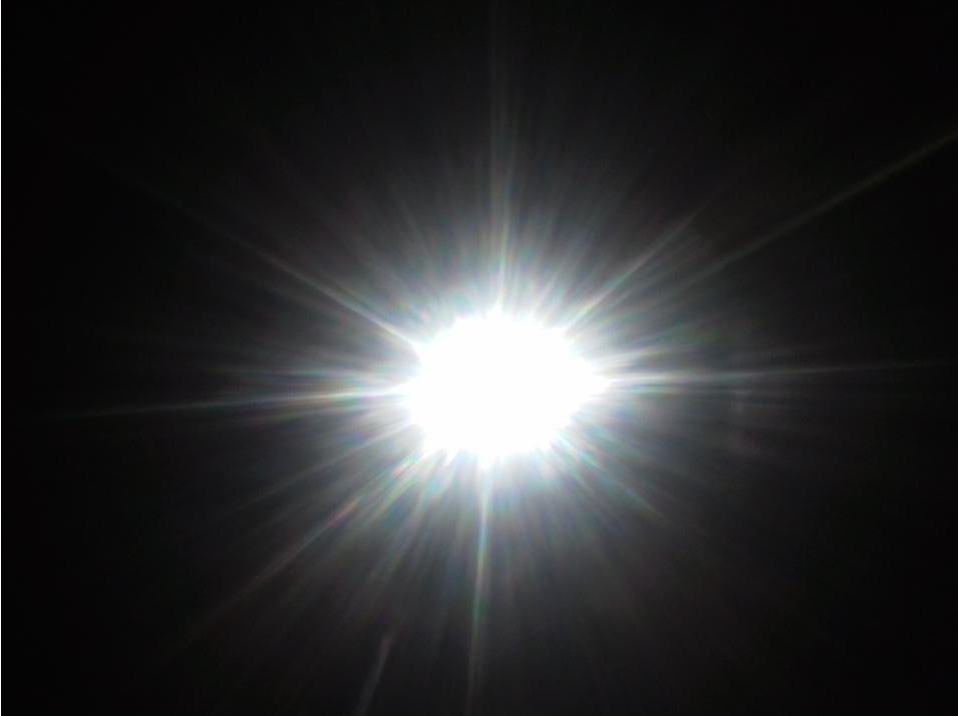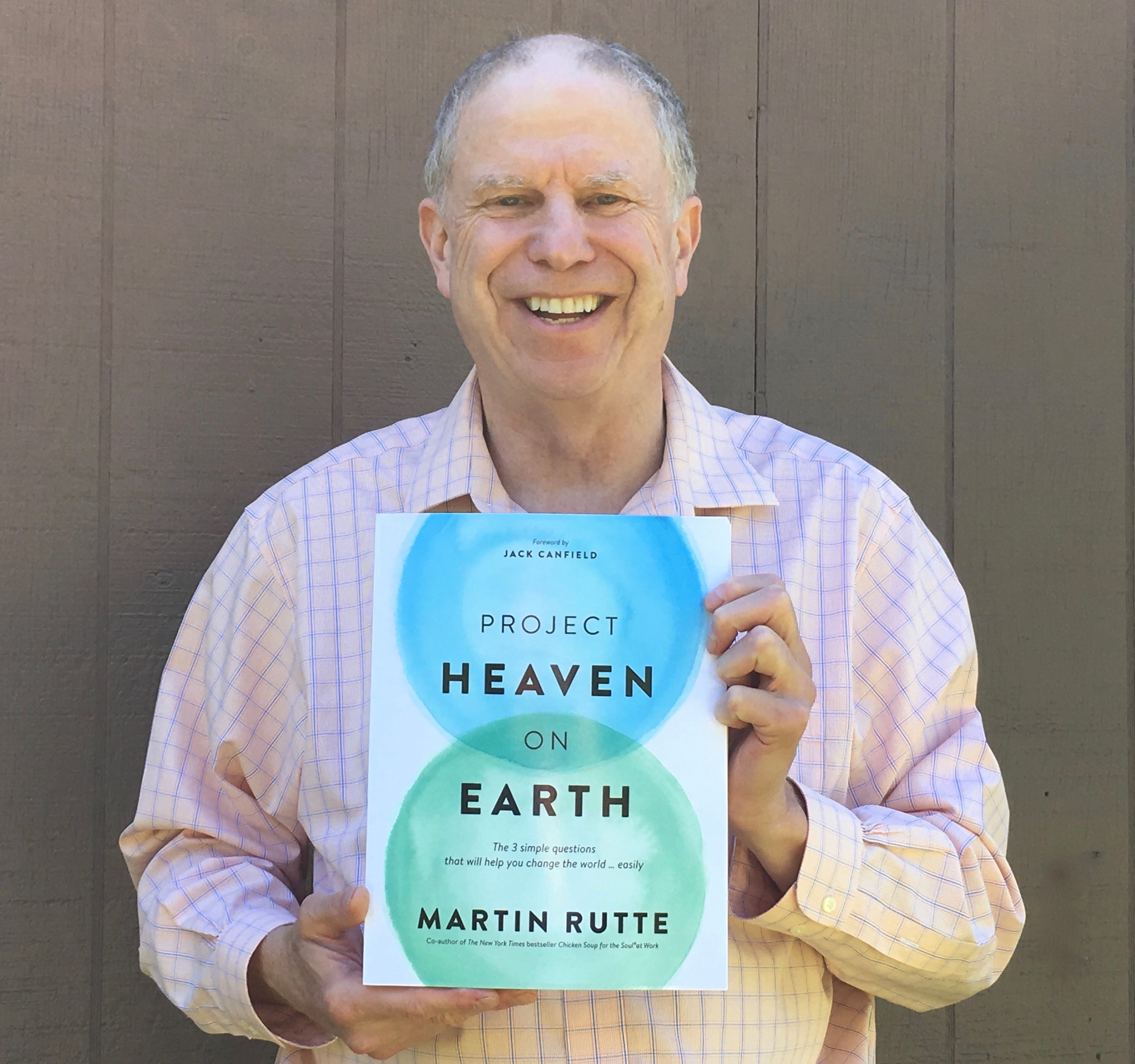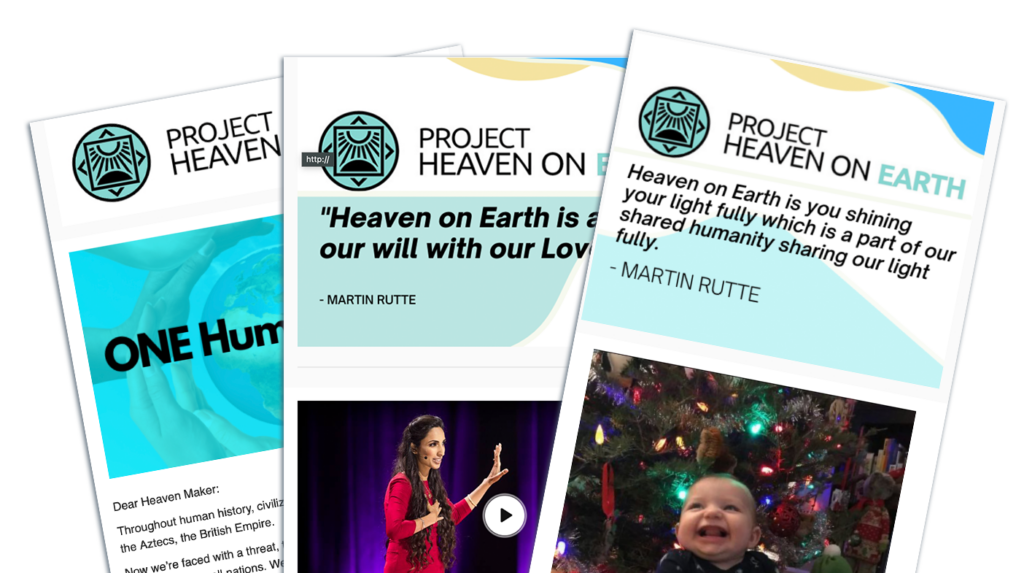To share this post by email, click here.
Dear Heaven Maker:
Have you ever noticed how many Hollywood films and TV shows deal with Not-Heaven-On-Earth?
They’re called dystopian stories.
Stories about how bad the world is, how there’s no hope, no light.
I recently read this article about how much easier it is for writers to write dystopian stories than it is to write utopian stories.
But that’s exactly the job of film and TV writers and the people who produce that kind of media … to inspire … to create new positive visions, new positive stories of what it means to be a human and what it means to be Humanity.
We need more light in the world!
Please read this article by AEIdeas and use it to inspire you to bring more light into our world.
Love,
Martin
+++++++++++++++++++++++++++++++++
In a new piece for Slate’s Future Tense series, science fiction writer Cory Doctorow recalls that when he first moved to California from Toronto, he was shocked that there were so many gun stores. How could so many of his otherwise genial and reasonable seeming neighbors be so heavily armed? Then came COVID-19. Doctorow:
When the lockdown went into effect, the mysterious gun stores on the main street near my house sprouted around-the-block lines of poorly distanced people lining up to buy handguns. I used to joke that they were planning to shoot the virus and that their marksmanship was not likely to be up to the task, but I knew what it was all about. They were buying guns because they’d told themselves a story: As soon as things went wrong, order would collapse, and their neighbors would turn on them.
Hard to blame them. That’s the story our culture has been telling us for years: The future will be terrible. And not just because of external factors such as a plague, asteroid strike, or alien invasion. Whatever happens, we’ll make it worse through our panic and selfishness. That is too often our received vision of the future.
But that can’t be healthy for American society, or any society. As futurist Frederik Polak wrote decades ago, “Any culture which finds itself in the condition of our present culture, turning aside from its own heritage of positive visions of the future, or actively at work in changing these positive visions into negative ones, has no future.” When Polak wrote that in the early 1950s, he was describing postwar Europe. But it kind of seems like it applies to 21st-century America. Certainly, the future depicted by the most powerful futurist today, Hollywood, is fairly bleak. It’s a subject I brought up with television producer and writer Ronald D. Moore in a recent podcast. Moore is perhaps most well known as the creator of the 2004 version of “Battlestar Galactica,” as well as for the current Apple TV+ series about an alt-history Space Race, “For All Mankind.” From our conversation:
Pethokoukis: Back in the 1960s — you mentioned “Star Trek,” which you were a big fan of, even before you later became a writer for “The Next Generation” and some of the other incarnations. And we also had shows like “The Jetsons,” and even “2001” was also, I think, a techno-optimistic film. But then in the ’70s, we started getting a lot of pessimism. You got all those Charlton Heston movies, like “Soylent Green” and “Omega Man.” And then today, you see America’s vision of the future, and it really seems just to be dystopian scenarios: zombies, plagues, climate disasters, and oligarchical societies run by the super-rich surveillance states.
Neal Stephenson, the sci-fi author, has publicly lamented this, and here’s a quote from him: “No one will be inspired to build the next great space vessel or find a way to completely end dependence on fossil fuels when all our stories about the future promise a shattered world.” Do you think our culture produces too many dystopian stories, and do you think it matters?
Moore: I think I agree with both questions. I think we do have too many dystopian future worlds, and I think it does matter. It’s a little easier to write a dystopian piece, in all honesty. It’s easier to make things really crappy and show people at their worst. You know, “What if this disaster had happened and all the people are dead except for…” It’s really easy to go to those places, because it’s a natural place of drama.
It’s harder to write “Star Trek,” which is why there’s really no other competitor for “Star Trek” in terms of what we’re talking about. Trek stands alone in its optimistic idea of the future, at least in terms of pop culture science fiction on film and television. There’s really nothing else, and Trek kind of owns that space. Not only did it say, “Here’s an optimistic vision of the future,” but it’s a future that probably almost everybody now buys into. If you ask people what they hope the future’s going to look like, they’re probably going to describe a future that’s very much like “Star Trek”: a world that conquers disease, poverty, and racial tension; nations no longer go to war with each other; and we go out into the galaxy in peace and for freedom, representing democratic values. That’s the dream, and that’s what Trek is all about. It’s harder to find drama in that situation. It’s harder to figure out what the conflict is. You have to work a little bit more. So it’s a little easier just as a writer to draw up the dystopian scenario.
I think that is a really good point that Stephenson made in that quote, — if that’s the whole diet, then no one is going to be inspired to do things. “Star Trek” inspired generations of people. When I was working at “Next Generation” and “Deep Space Nine,” people were constantly coming to us who worked at NASA or worked in Silicon Valley. They had gotten into those professions because they were inspired by “Star Trek,” because they either wanted to be astronauts or they wanted to be engineers or wanted to make a transporter. They just were so inspired and excited by the ideas that they saw in that vision of the future that they literally dedicated themselves to doing it. We need to provide that for people. We need to give people that kind of hope and that kind of inspiration if we want them to achieve those things because I think culture is very powerful. It does influence how we think and how we behave and what we achieve.
Original article here.


 Martin Rutte
Martin Rutte




